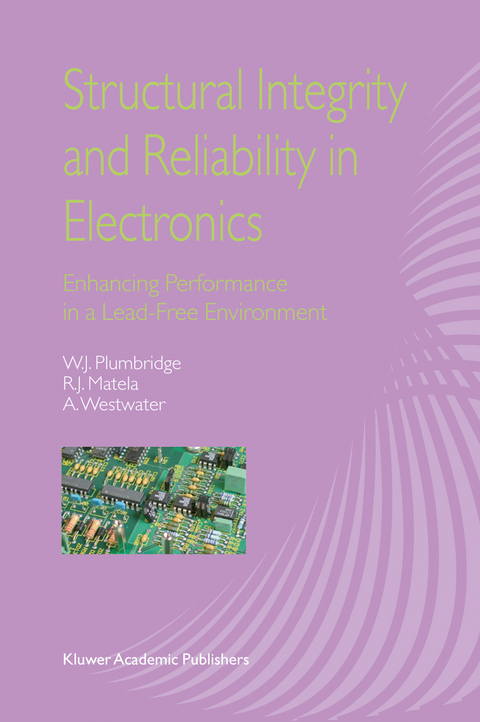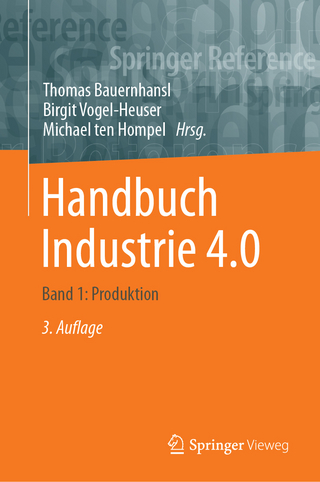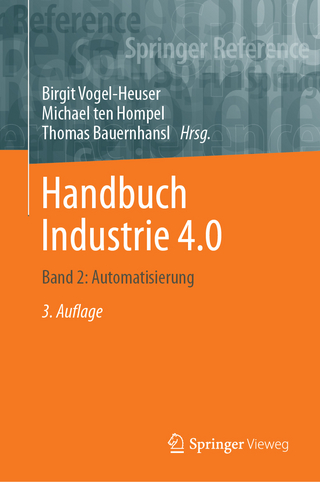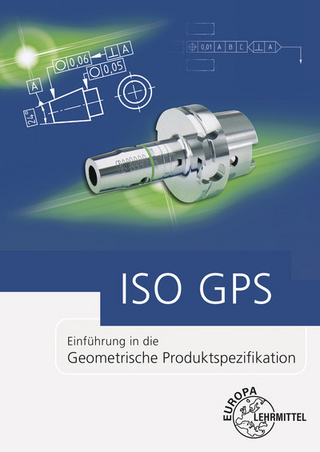
Structural Integrity and Reliability in Electronics
Enhancing Performance in a Lead-Free Environment
Seiten
2010
Springer (Verlag)
978-90-481-6495-0 (ISBN)
Springer (Verlag)
978-90-481-6495-0 (ISBN)
Knowledge itself is soon obsolete; It is a blunt instrument. Only by understanding can problems be solved and progress achieved. Reliability in performance of electronic equipment, in the face of demands for continuing miniaturisation and the anticipated abolition of lead containing solders, represents a major engineering challenge. The involvement of numerous disciplines; such as electrical, electronic, mechanical, manufacturing, and materials engineering together with physicists and computer specialists, adds to the complexity of the situation. Nevertheless, with electronics being the World's largest industrial sector, the potential rewards to the winners are substantial. This book aims to provide the ingredients for understanding, together with knowledge of reliability in interconnection technology and of the implementation of lead free solders. It is strongly contended that such a combination forms the necessary basis for greater structural integrity and enhanced performance The text is essentially in three parts: The intentions of the Part I component {The Materials Perspective, Chapters 1 6) are to present a snapshot of the current, but rapidly changing, global scene and to establish a firm understanding of the fundamentals surrounding interconnection performance. With potential readers possessing a broad spectrum of knowledge and expertise, this is essential. It could be argued that the reason for the limited progress made in this field to date has been due to the difficulties encountered in communicating effectively across the discipline boundaries.
Setting the Scene.- to the Properties of Materials.- More Complex Mechanical Behaviour.- Mechanical Testing (For Electronics Applications).- Mechanical Properties of Bulk Solders.- Mechanical Behaviour of Solder Joints.- Electronic Components and Their Construction.- Printed Circuit Board Assembly Methods and Technologies.- Fundamentals of Failure Analysis.- Analysis of PCB and Electronic Component Failure.- Making the Transition to a Reliable Lead-free Solder Process.- to Life Prediction.- Life Prediction by Crack Propagation Approach.- Reliability and Statistical Analysis of Data.- Thermal and Mechanical Simulation in Microelectronics.- Finite Element Analysis.- Non-linear Finite Element Analysis.- Case Study.
| Zusatzinfo | 248 Illustrations, black and white; XIX, 336 p. 248 illus. |
|---|---|
| Verlagsort | Dordrecht |
| Sprache | englisch |
| Maße | 155 x 235 mm |
| Themenwelt | Informatik ► Weitere Themen ► CAD-Programme |
| Mathematik / Informatik ► Mathematik ► Angewandte Mathematik | |
| Naturwissenschaften ► Physik / Astronomie ► Mechanik | |
| Technik ► Bauwesen | |
| Technik ► Maschinenbau | |
| ISBN-10 | 90-481-6495-8 / 9048164958 |
| ISBN-13 | 978-90-481-6495-0 / 9789048164950 |
| Zustand | Neuware |
| Informationen gemäß Produktsicherheitsverordnung (GPSR) | |
| Haben Sie eine Frage zum Produkt? |
Mehr entdecken
aus dem Bereich
aus dem Bereich
Band 2: Automatisierung
Buch | Hardcover (2024)
Springer Vieweg (Verlag)
99,99 €
Einführung in die Geometrische Produktspezifikation
Buch | Softcover (2023)
Europa-Lehrmittel (Verlag)
20,70 €


